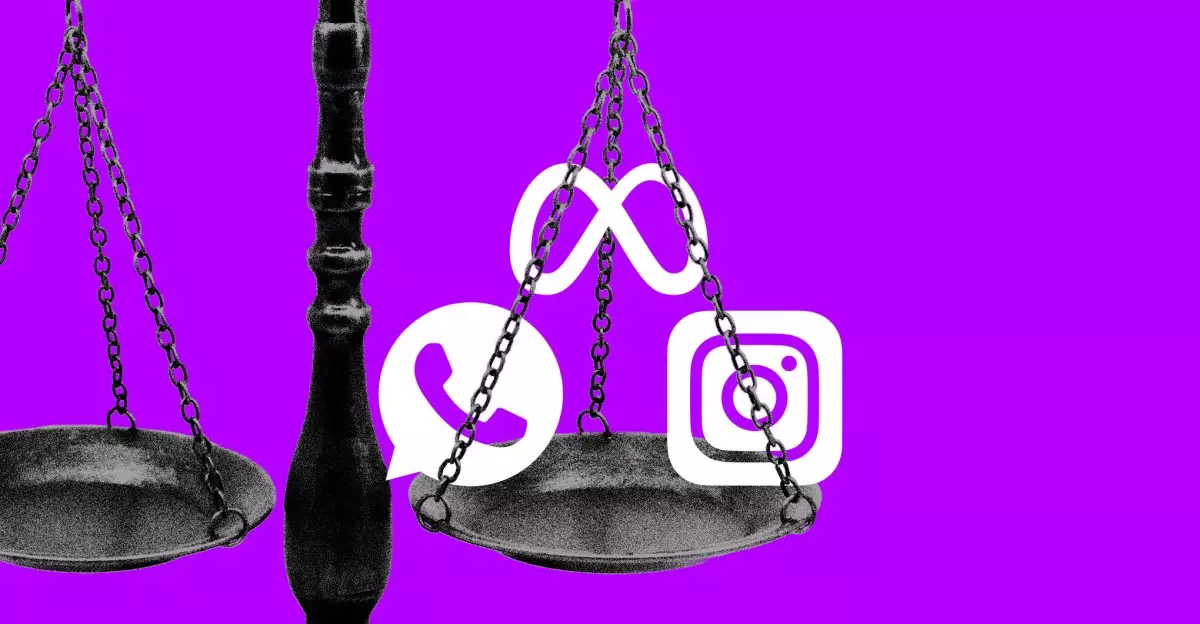The recent antitrust trial against Meta, the parent company of Facebook, Instagram, and WhatsApp, has sparked a heated debate over the interpretation of acquisitions in the tech sector. Central to this dispute is Mark Zuckerberg’s perspective on the purchase of WhatsApp and Instagram, which he defended during a grueling testimony that lasted a staggering 13 hours. The FTC’s stance is rooted in a belief that Zuckerberg sought to eliminate competition, labeling his acquisitions as part of a nefarious catch-and-kill strategy. However, the CEO emphatically asserted that these purchases were motivated by a genuine belief in their potential for improvement and innovation.
What’s at stake in this trial is not just the potential unraveling of these acquisitions, but the broader implications for innovation within the tech industry. If the FTC prevails, it could set a precedent that dampens high-stakes investments in innovation, leading to a chilling effect on the entrepreneurial spirit that fuels technological progress.
Zuckerberg’s Response: A Case for Value Creation
During his testimony, Zuckerberg articulated a vision that framed both WhatsApp and Instagram as essential to Facebook’s evolution. When asked about his $19 billion investment in WhatsApp, his quick and confident response, “I’d do it again,” underscored his unwavering belief in the app’s value. He argued that the growth of messaging applications was shifting user engagement from more public spaces, like the Facebook News Feed, to private messaging threads. Rather than stifling competition, Zuckerberg maintained that his acquisitions were strategic moves that allowed for reinvention and adaptation in a rapidly changing digital landscape.
This perspective is essential to consider, particularly in an industry where technological evolution is a constant. By acquiring WhatsApp, Zuckerberg sought to not just eliminate a potential rival, but to integrate the platform into Facebook’s broader ecosystem, enhancing user experiences across all applications. The question is whether such thinking can align with antitrust principles that seek to monitor monopolistic behavior.
The Nuances of Competition and Growth
Zuckerberg’s argument gains further credibility when considering the trajectory of Instagram post-acquisition. Initially, he recognized that Instagram had about 10 million users—a relatively modest figure compared to its present-day user base of over 2 billion. He posited that without Facebook’s guidance and resources, it was “extremely unlikely” that Instagram would have achieved such success independently. This assertion aligns with the broader entrepreneurial narrative, where mentorship and investment can catalyze growth that would otherwise be hindered by a lack of resources.
However, this narrative does not come without its complexities. The testimony revealed some friction between Zuckerberg and the co-founders of Instagram. He acknowledged instructing the Instagram team to bypass Facebook for driving user growth, an indication of the often tumultuous relationship between growth expectations and surviving competition. The challenges posed by internal dynamics reflect the reality that innovation often requires a delicate balance of vision and negotiation.
Additionally, Zuckerberg’s fears regarding competitive pressure from tech giants like Google and Apple underline the necessity for robust negotiation tactics within the tech industry. His candid acknowledgment of the challenges faced in securing distribution channels through app stores reveals the intricate interplay between market forces and corporate strategy. The acquisition of WhatsApp, in this context, was a calculated move to bolster Meta’s resilience against such dominant players.
Recasting the Narrative: Investments in a Digital Future
Moving forward, the discourse surrounding acquisitions must shift from a narrative focused solely on competition to one that embraces the role of these transactions in fostering broader innovation. The argument that Zuckerberg and Meta have attempted to suppress competition by acquiring promising platforms overlooks the potential for such acquisitions to elevate industry standards. Zuckerberg’s testimony articulated a clear message: rather than being a villain in a tale of corporate greed, he envisioned himself as an architect of a more extensive, interconnected digital ecosystem.
The truth is, transformative ideas often require backing and infrastructure to thrive, particularly in a digital age marked by rapid shifts in consumer behavior and technological capabilities. When viewed through this lens, acquisitions like WhatsApp and Instagram can be understood not merely as strategic plays to eliminate competition, but as integral components in building a robust technological future where multiple platforms contribute to a richer user experience.
Ultimately, as the trial continues, the implications of this landmark case go beyond Meta’s corporate structure. It raises critical questions about how we perceive innovation and competition in technology. The answer to whether Mark Zuckerberg has actively stifled competition or championed innovation may very well reshape the legal landscape for tech acquisitions for years to come.

